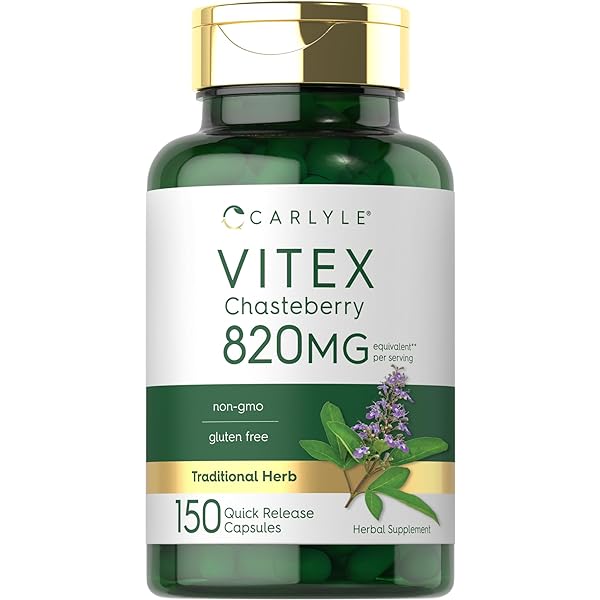The decision to stop using birth control can significantly impact your body, particularly your hormones. While birth control methods like the pill, patch, or IUD help regulate hormones during use, discontinuing them can lead to imbalances.
These imbalances may cause a variety of symptoms, including mood swings, irregular periods, and acne. Fortunately, there are natural ways to help your body regain hormonal balance.
This article will guide you through effective strategies to balance your hormones naturally after birth control.
Understanding the Impact of Birth Control on Hormones
Before diving into natural remedies, it’s crucial to understand how birth control affects your hormones. Most hormonal birth control methods contain synthetic versions of estrogen and progesterone. These hormones prevent ovulation, thin the uterine lining, and thicken the cervical mucus to prevent pregnancy.
Recommended: 8 Natural Remedies for Menstrual Cramps Relief
When you stop taking birth control, your body must readjust to regulating these hormones on its own, which can lead to temporary imbalances.

Common Symptoms of Hormonal Imbalance After Birth Control
- Irregular Periods: It may take time for your menstrual cycle to become regular again.
- Acne: Hormonal fluctuations can lead to breakouts, especially around the jawline and chin.
- Mood Swings: Changes in hormone levels can affect your mood, leading to irritability or depression.
- Weight Fluctuations: Some women may experience weight gain or difficulty losing weight.
- Fatigue: Hormonal imbalances can cause feelings of tiredness and low energy.
7 Strategies to Balance Hormones Naturally After Birth Control
1. Prioritize Whole Foods
One of the best ways to support hormonal balance is by eating a diet rich in whole, unprocessed foods. Focus on consuming plenty of vegetables, fruits, lean proteins, and healthy fats. These foods provide essential nutrients that help your body produce and regulate hormones effectively.
Recommended: 9 Major Signs of Hormonal Imbalance in Women Over 40
Key Nutrients for Hormonal Balance
- Healthy Fats: Include sources of omega-3 fatty acids, such as salmon, chia seeds, and walnuts, to support hormone production.
- Fiber: Eating fiber-rich foods like vegetables, fruits, and whole grains helps your body eliminate excess estrogen, reducing the risk of estrogen dominance.
- Protein: Adequate protein intake is crucial for maintaining stable blood sugar levels, which directly impacts hormone regulation.
2. Balance Blood Sugar Levels
Blood sugar imbalances can lead to insulin resistance, which can disrupt hormonal balance. To maintain steady blood sugar levels, eat small, balanced meals throughout the day. Avoid refined sugars and high-glycemic-index foods that cause spikes and crashes in blood sugar.
Recommended: How To Use Neem Oil As a Contraceptive
Tips for Stabilizing Blood Sugar
- Eat Protein with Every Meal: Protein slows down the absorption of sugar into the bloodstream, preventing spikes.
- Choose Complex Carbohydrates: Opt for whole grains, legumes, and vegetables over refined carbs like white bread and pasta.
- Incorporate Healthy Fats: Healthy fats help stabilize blood sugar and keep you feeling full longer.
3. Support Liver Health
Your liver plays a crucial role in metabolizing and eliminating excess hormones. To support liver health, include detoxifying foods like leafy greens, cruciferous vegetables (broccoli, cauliflower, and Brussels sprouts), and foods rich in antioxidants.
Recommended: Emergency Contraceptives in Nigeria: A Comprehensive Guide
Natural Liver Supporters
- Milk Thistle: This herb has been shown to support liver detoxification and regeneration.
- Dandelion Root: Dandelion root tea can help improve liver function and bile production.
- Turmeric: Curcumin, the active ingredient in turmeric, has anti-inflammatory properties that support liver health.

4. Manage Stress
Chronic stress can wreak havoc on your hormones, particularly cortisol and adrenaline. High cortisol levels can lead to imbalances in estrogen, progesterone, and thyroid hormones. Incorporate stress-reducing activities into your daily routine to help manage stress.
Recommended: Does Ovulation Make You Sleepy?
Effective Stress-Reduction Techniques
- Mindfulness Meditation: Practicing mindfulness can help lower cortisol levels and improve overall hormonal balance.
- Exercise: Regular physical activity, especially yoga or Pilates, can reduce stress and balance hormones.
- Adequate Sleep: Aim for 7-9 hours of quality sleep each night to allow your body to recover and regulate hormones.
5. Exercise regularly, but Don’t Overdo It
Exercise is essential for hormonal balance, but too much can be counterproductive. Over-exercising can increase cortisol levels, leading to hormonal imbalances. Aim for a balanced exercise routine that includes strength training, cardio, and flexibility exercises.
Recommended: Does Female Masturbation Affect Ovulation?
Exercise Tips for Hormonal Health
- Strength Training: Helps build muscle, which can improve insulin sensitivity and hormone regulation.
- Moderate Cardio: Activities like walking, cycling, or swimming promote cardiovascular health without overstressing the body.
- Restorative Practices: Incorporate yoga or stretching to support relaxation and reduce stress.
6. Incorporate Adaptogenic Herbs
Adaptogens are a group of herbs known for their ability to help the body adapt to stress and maintain hormonal balance. These herbs can be particularly beneficial after stopping birth control.
Recommended: Do Ovulation Tests Get Darker After 5 Minutes?
Popular Adaptogens for Hormonal Health
- Ashwagandha: Known for reducing stress and balancing cortisol levels.
- Maca Root: Traditionally used to support reproductive health and balance estrogen and progesterone.
- Rhodiola: Helps reduce fatigue and improve mental clarity, particularly during times of hormonal fluctuation.

7. Consider Vitex (Chaste Tree Berry)
Vitex, also known as chaste tree berry, is a well-known herb for balancing female hormones. It works by supporting the pituitary gland, which regulates the production of hormones like estrogen and progesterone.
Recommended: Can Taking Testosterone Make You Sterile?
Vitex is particularly effective for regulating menstrual cycles and reducing PMS symptoms after discontinuing birth control.
How to Use Vitex:
- Tea: Steep 1-2 teaspoons of dried Vitex berries in hot water for 10-15 minutes. Drink once daily.
- Supplements: Vitex supplements are widely available and can be taken as capsules or tinctures.
Conclusion
Balancing hormones naturally after discontinuing birth control is achievable with the right combination of nutrition, lifestyle changes, and herbal remedies. By prioritizing whole foods, managing stress, supporting liver health, and incorporating adaptogenic herbs, you can help your body regain hormonal balance.
Remember that every woman’s body is different, and it may take time for your hormones to stabilize. Be patient with yourself, and consider consulting with a healthcare provider to develop a personalized plan that suits your unique needs.
Balancing your hormones naturally is a journey, but with these strategies, you can support your body’s transition and promote overall well-being.
